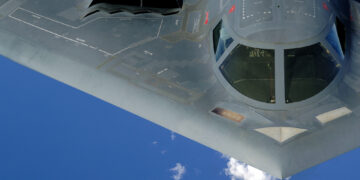May 23, 2019
U.S. military forces in the Middle East should decrease, not increase by 10,000
FOR IMMEDIATE RELEASE:
May 23, 2019
Contact: press@defensepriorities.org
WASHINGTON, DC—In response to reports the Pentagon would present plans to the White House to send up to 10,000 additional U.S. troops to the Middle East amid escalating tensions with Iran, Defense Priorities Policy Director Benjamin H. Friedman issued the following statement:
“The United States already has more than 20,000 troops in the Middle East and more nearby. That’s already too many.
“Instead of sending 10,000 additional troops to the Middle East, the U.S. should be removing forces from the region, especially from Syria and Iraq. Those troops left behind have no coherent mission now that ISIS’s caliphate has been destroyed. U.S. forces are vulnerable to attack, which could lead to a crisis or war with Iran.
“U.S. interests in the Middle East are limited to avoiding a major disruption to global oil markets, primarily by preventing a regional hegemon, and combatting anti-American terrorists. Neither interest justifies a permanent troop presence, let alone a larger one, or war with Iran.
“As a middling power surrounded by rivals, Iran is not capable of dominating the region. And U.S. counterterrorism aims are best accomplished by cooperation with local partners and strikes from offshore, when necessary.
“The Middle East is of diminishing strategic importance to the U.S., and the threat from Iran is limited. Its malign activities, like funding extremists, are undesirable, but they show Iran’s weakness, not its strength. The Iranians are contained, and then some. We should be doing less in the region, not more.
“The ’maximum pressure’ campaign is not likely to lead Iran back to the negotiating table, the president’s stated objective—it’s most likely to result in Iran restarting its nuclear weapons program or launching direct or proxy attacks.”
More on Middle East

By Jennifer Kavanagh and Dan Caldwell
June 28, 2025

By Rosemary Kelanic and Jennifer Kavanagh
June 25, 2025

Featuring Rosemary Kelanic
June 25, 2025
Events on Middle East






